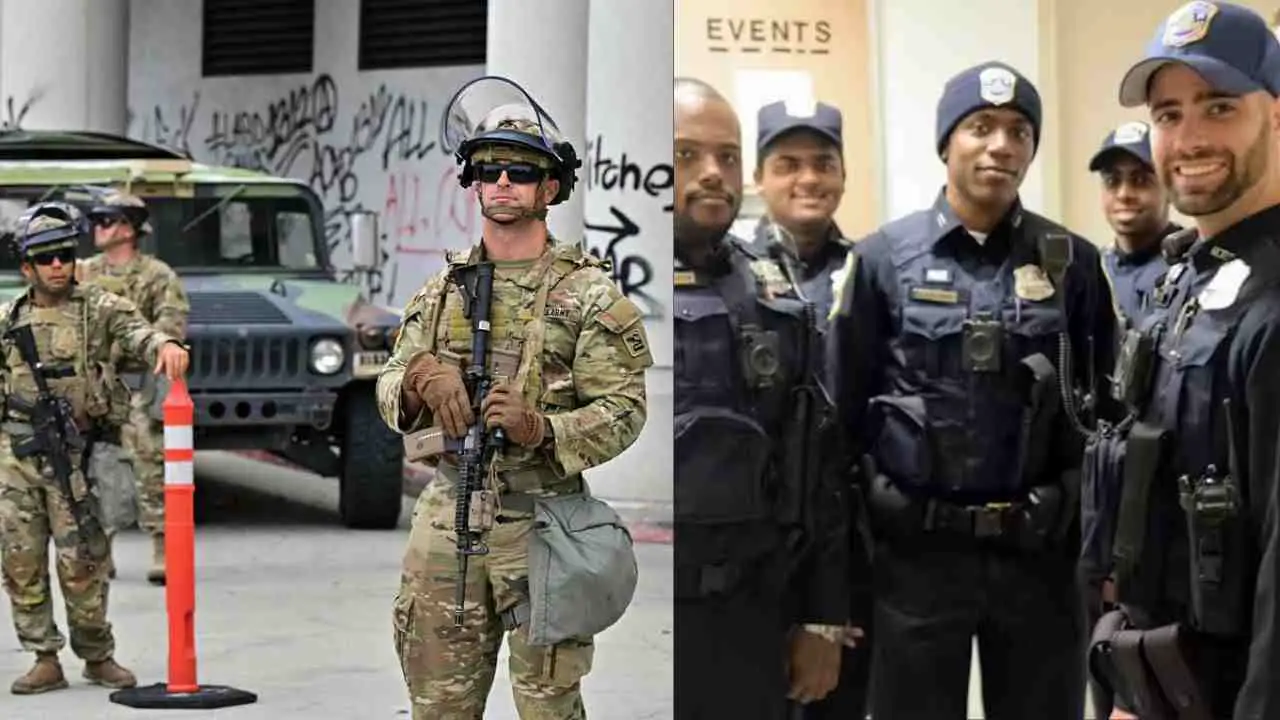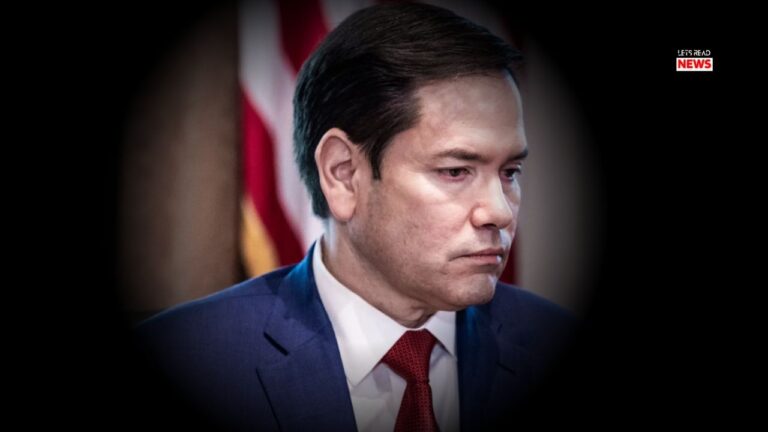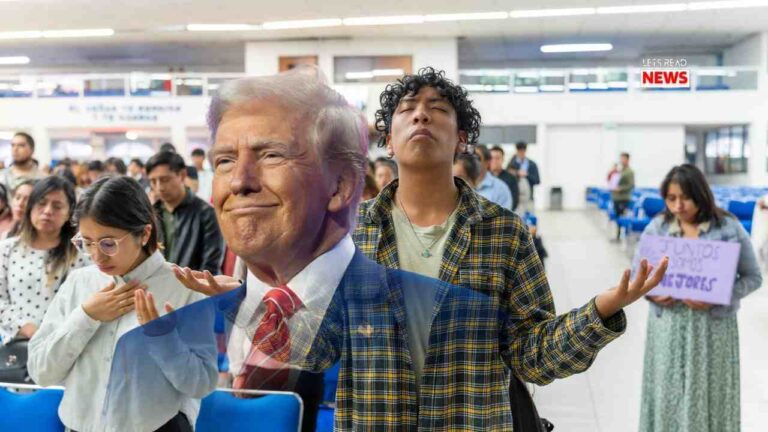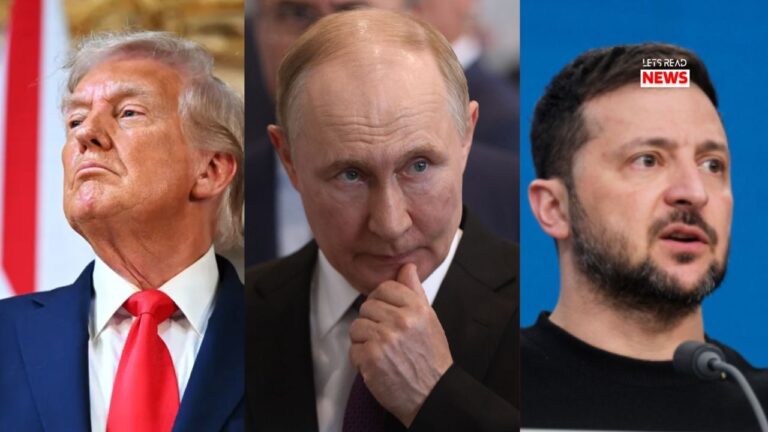Trump’s Federal Takeover of D.C. Police: Controversy, Impacts, and Reactions

On August 11, 2025, President Donald Trump announced a dramatic move to federalize the Washington, D.C. Metropolitan Police Department (MPD) and deploy 800 National Guard troops to the nation’s capital, citing a “crime emergency.” Invoking Section 740 of the 1973 District of Columbia Home Rule Act, Trump placed the MPD under federal control, appointing Drug Enforcement Administration (DEA) head Terry Cole as interim commissioner and Attorney General Pam Bondi to oversee operations. This unprecedented action has sparked intense debate, with local leaders, residents, and experts questioning its legality, necessity, and potential consequences. This article explores the details of the takeover, its implications for D.C.’s governance, and the reactions it has provoked.
Details of the Takeover
Trump’s announcement, made during a White House press conference, framed the takeover as a response to what he described as rampant crime in D.C., comparing the city to “Lagos and Bogota” and calling it a “horror show.” He cited high-profile incidents, such as a recent Logan Circle killing, and waved printouts he claimed showed D.C.’s crime rates surpassing those of dangerous global cities. The administration’s plan includes:
- Federal Control of MPD: Section 740 of the Home Rule Act allows the president to seize control of the MPD during emergency conditions for up to 30 days, pending congressional approval for extension. Terry Cole, confirmed as DEA head in spring 2025, was named interim commissioner, replacing MPD Chief Pamela Smith in operational authority.
- National Guard Deployment: 800 D.C. National Guard troops began patrolling D.C. streets on August 12, 2025, to support law enforcement, though not performing direct police functions. This marks Trump’s third National Guard deployment since January 2025, raising concerns about the militarization of domestic spaces.
- Broad Mandate: Trump’s directive to police to “do whatever the hell they want” to curb crime has alarmed critics, who fear it could lead to excessive force and civil liberties violations. The White House clarified that federal oversight would work with MPD, but the chain of command runs through the president, Bondi, and Cole.
The takeover follows earlier moves by Trump to assert federal authority over D.C., including a week-long patrol by federal agencies like the FBI, DEA, and U.S. Park Police starting August 8, 2025. Trump also outlined plans to appoint new D.C. judges, end no-cash bail, and address issues like potholes and homelessness, signaling a broader vision to control local governance.
Legal and Political Context
The Home Rule Act of 1973 grants D.C. limited self-governance, with an elected mayor and city council managing local affairs. However, Section 740 provides a loophole for presidential intervention in the MPD during emergencies, requiring only written notification to Congress within 48 hours. Trump met this requirement on August 11, 2025, and House Oversight Committee Republicans confirmed receipt, allowing the takeover to proceed for 30 days unless Congress extends or revokes it.
Legal experts, such as Paul Schiff Berman, former dean of George Washington University Law School, argue that D.C.’s non-state status gives the president unique leverage, unlike in states where federalism limits such actions. However, D.C. Attorney General Brian Schwalb called the move “unprecedented, unnecessary, and unlawful,” citing a 26% drop in violent crime in 2025 and questioning the emergency’s basis. Schwalb is exploring legal challenges, though the courts’ ability to review the declaration remains unclear.
Congress could intervene by passing a joint resolution to extend or terminate the takeover. Rep. Jamie Raskin (D-Md.) plans to introduce a bill to undo the move, but Republican majorities in both chambers make this unlikely, especially during Congress’s recess until after Labor Day. House Majority Leader Steve Scalise (R-La.) expressed support for Trump’s efforts to “restore law and order.”
Local and National Reactions
The takeover caught D.C. officials off guard, with Mayor Muriel Bowser pledging to “work every day to make sure it’s not a complete disaster.” Bowser and MPD Chief Pamela Smith emphasized ongoing local control, with Smith noting an “enhanced presence” but no new federal directives as of August 13, 2025. The D.C. police union supported the move as temporary but urged caution, while most local leaders, including council members, condemned it as an overreach.
Residents’ reactions are mixed. Some rallied near the White House during Trump’s announcement, protesting the loss of local autonomy. A Washington Post interview with an anonymous resident highlighted personal safety concerns despite calling D.C. a “safe city,” reflecting public unease. Posts on X reveal divided sentiment, with some praising Trump’s focus on crime and others decrying the move as authoritarian.
Nationally, Democrats like House Minority Leader Hakeem Jeffries (D-N.Y.) argued there’s “no basis” for the takeover, while experts like Tahir Duckett of Georgetown Law warned that federal oversight could erode community trust and hinder crime-solving efforts. The Wall Street Journal noted this as part of Trump’s pattern of pushing the boundaries of domestic military deployment.
Impacts on D.C. and Beyond
The takeover raises several concerns:
- Erosion of Home Rule: Critics fear this sets a precedent for federal overreach in D.C., undermining its limited self-governance. Trump’s broader plans to control local judges and policies like no-cash bail suggest a potential federal takeover of the city, which would require congressional approval.
- Community Trust: Federal control and a vague mandate for police could strain relations between law enforcement and D.C. residents, particularly in communities already skeptical of policing practices.
- Crime Data Discrepancy: Trump’s narrative of a crime-ridden D.C. contradicts data showing a 26% drop in violent crime in 2025. High-profile incidents exist, but overall trends do not support the emergency declaration, according to the Associated Press and Axios D.C.
- National Precedent: The deployment of National Guard troops and federalization of local police could embolden similar actions in other cities, raising questions about federal power in a federalist system.
Conclusion
Trump’s federal takeover of the D.C. police and National Guard deployment represents a bold and controversial assertion of presidential authority. While the administration frames it as a necessary response to crime, critics argue it’s an unjustified power grab that threatens D.C.’s autonomy and community trust. With legal challenges pending and Congress on recess, the situation remains fluid. The outcome will likely shape debates over federal power, local governance, and public safety in the nation’s capital and beyond.
Read More from Lets Read News
- Trump’s D.C. Crackdown: National Guard Deployment Sparks Debate
- Trump’s Tariffs Trigger Price Hikes: Nike, Adidas, and Others Pass Costs to U.S. Consumers
- Trump’s Tariffs on Other Countries: Global Reactions, Domestic Impacts, and Tariff Rates
- India Slams U.S. Tariff Hike as “Unfair and Unjustified,” Vows to Protect National Interests






